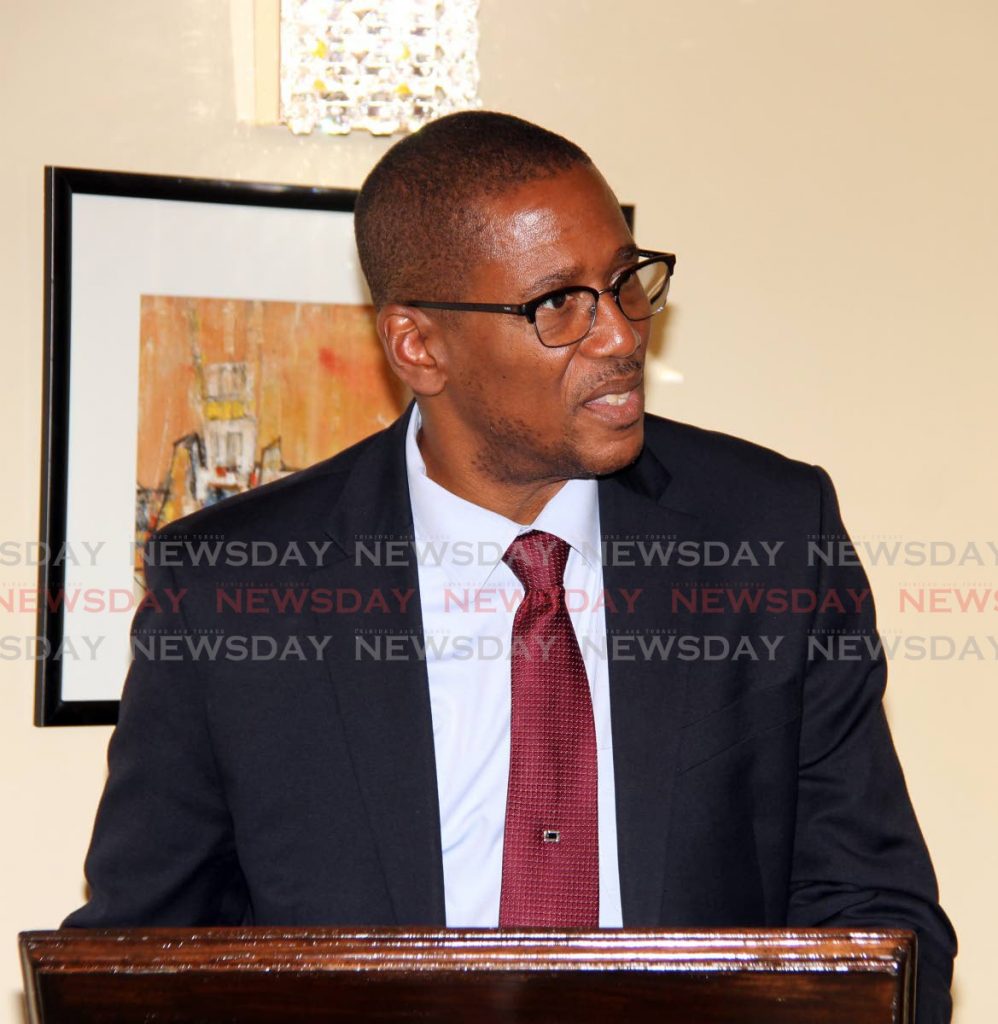Prosecutors overburdened by criminal court rules

From as far back as January 2019, Director of Public Prosecutions (DPP) Roger Gaspard, SC, warned in consultations with the Chief Justice about the criminal justice system being plunged into total chaos and further undermining the public’s confidence in the administration of justice.
In his address on October 7, Chief Justice Ivor Archie said the criminal justice system was on the verge of collapse not because of covid19, but insinuated that it was Gaspard’s department to blame as he pointed to the meagre number of indictments filed for the last term.
In a public response, Gaspard rubbished the notion and instead pointed to the reneging of an agreement on the way indictments could be filed, the non-appointment of criminal judges to serve in the ten assizes, the inability to deal with the hundreds of decade-old cases already in the system, and staffing issues at his own department.
But, early last year, Gaspard warned of scheduling conflicts with the implementation of the case-management calendaring system for the criminal division in February 2019.
Despite Gaspard’s early entreaties, the situation worsened leading to a decision being taken in August to have only two prosecutors assigned to a judge in the High Court who will take priority over masters for case management conferences (CMCs).
Prosecutors are required to prosecute trials while also attend CMCs. Case management conferences replaced cause list hearings and freed up judges who, in the past, would preside over the latter to determine the readiness of cases to go to trial. CMCs are now dealt with by the masters assigned to the criminal division.
However, Gaspard, in a letter to Archie in July, said his fears were realised when the calendaring system began since judges and masters have been unwilling to harmonise their schedules for trials and CMCs.
With trials and CMCs being set to take place at the same time, this has resulted in the prosecutors, assigned to trials, being unable to be present before the master.
In an effort to resolve the conflicts, and “with an abiding desire to partner with the Judiciary,” Gaspard took a decision to assign prosecutors who are assigned to the magistrates’ court to also attend case management conferences. These 32 prosecutors, however, also have a cumulative case load of 4,086 cases to prosecute in 40 courts and 11 children courts throughout TT.
Added to their ever increasing case load from the magistrates’ courts, these prosecutors are expected to attend CMCs, as many as three per month, for some 45 cases, resulting in them struggling to comply with the court’s orders.
This, Gaspard bemoaned has had a deleterious effect on the human resources in his department as he warned that the situation “clearly had the potential to diminish the quality of criminal justice which the public is entitled to and should expect.”
Low morale
Gaspard said his department has endured the strain for more than a year at a great cost to the well-being of staff.
“Not surprisingly, it has resulted in high levels of staff frustration and low morale, not to mention diminishing returns at the case management conferences,” Gaspard said in his letter in July.
He also said there was no coincidence that in that same period, his department lost 13 prosecutors at varying levels of expertise who left their permanent posts to pick up contract positions.

Many of them gave as their primary reason for leaving the department to being over extended and exhausted.
“It is no exaggeration to say that in my many years as a prosecutor, the morale in this office has never been lower,” Gaspard admitted.
He also said there appeared to be no respite in sight for the DPP’s office with the abolishing of preliminary inquiries since, although the magistrates court case load of 146,000 cases per year will be reduced by 26,000 cases, those cases won’t just disappear from the criminal justice system, but will be sent to the DPP’s office for eventual prosecution.
It was for this reason Gaspard decided to only assign two prosecutors to a judge in the High Court going forward and, because his department is already severely short-staffed, he cannot expend any more prosecutors for criminal trials.
These prosecutors will give their full attention to trials “in an effort to ensure the public gets the quality of justice it deserves” and will not be available for CMCs if there are scheduling conflicts.
“My prosecutors will be instructed to attend the trial before the judge,” Gaspard said, suggesting that judges and masters arrange a schedule to allow for a set and reasonable number of hearings at each monthly CMC so that the prosecutors assigned to the High Court can prepare for them while also deal with their trial lists.
In a recent letter to the editor, senior defence attorney Israel Khan, SC, while weighing in on the public discourse, said the low filing rate, as attributed by the CJ, could not be blamed for the backlog in the system.
“What remains is that the judiciary's resources have been re-enforced ever so often in the last ten years, yet the DPP remains under-resourced. More so, in the last five years the criminal division of the judiciary seeks to be more streamlined and efficient simply by piling the extra work on to the attorneys, while judges' support staff is increased and duties decreased.
“The fact remains there is delay in the DPP's office, but the DPP cannot be blamed for that. If the workload has increased and the resources remain the same, obviously the backlog will increase.
Khan pointed out prosecutors work with no support staff and the new criminal procedure rules, implemented in 2016, only benefitted judges but threw more work for the prosecution and defence, “with the greatest burden being put on the shoulders of the DPP.”
He also referred to Gaspard’s most recent complaint on the digital format for the filing of indictments as another example of the “shifting of work from the judiciary to the DPP.”
“More so, the judiciary has recently used masters of the High Court to deal with case management issues with the State and the defence.
“This also has caused delays, as the courts are ordering unnecessary and overly complicated preparation documents; and which is being marketed as assisting the system, while what it does is just give everyone else but the judiciary more work.”
Khan said as a practising attorney for the last 40 years, he could confirm that the judicial arm of the criminal justice system had collapsed.
“It is all well and good for all parties to point blame at each other for the various shortcomings, but the fact still remains it has collapsed.”

Comments
"Prosecutors overburdened by criminal court rules"